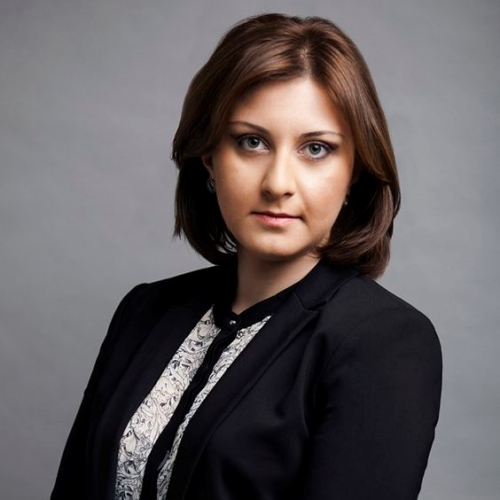Biographies - session I: AI and human rights

Karen Yeung
Professor, Birmingham Law School & School of Computer Science
Karen Yeung is Interdisciplinary Professorial Fellow in Law, Ethics and Informatics at the University of Birmingham in the School of Law and the School of Computer Science. Her research expertise lies in the regulation and governance of, and through, emerging technologies, with her more recent and on-going work focusing on the legal, ethical, social and democratic implications of a suite of technologies associated with automation and the ‘computational turn’, including big data analytics, artificial intelligence (including various forms of machine learning), distributed ledgers (including blockchain) and robotics. Her work has been at the forefront of nurturing ‘law, regulation and technology’ as a sub-field of legal and interdisciplinary scholarship, reflected in the publication of The Oxford Handbook of Law, Regulation and Technology (co-edited with Roger Brownsword and Eloise Scotford) in 2017.
Karen is actively involved in several technology policy and related initiatives in the UK and worldwide, including membership of the EU’s High Level Expert Group on Artificial Intelligence, as a member and rapporteur for the Council of Europe’s Expert Committee on human rights dimensions of automated data processing and different forms of artificial intelligence (MSI-AUT) and ethics advisor and member of the Expert Advisory Panel on Digital Medicine for the Topol Independent Technology Review for the NHS. She is admitted to practice as a Barrister and Solicitor of the Supreme Court of Victoria (Australia) and is on the editorial boards of Big Data & Society and Public Law.

Michael O'Flaherty
Director, EU Agency for Fundamental Rights
Michael O'Flaherty is Director of the EU Agency for Fundamental Rights. Previously, he was Established Professor of Human Rights Law and Director of the Irish Centre for Human Rights at the National University of Ireland Galway, and served as Chief Commissioner of the Northern Ireland Human Rights Commission. From 2004-2012, he was a member of the United National Human Rights Committee, latterly as a Vice-Chairperson. He is currently adjunct Professor of Law at the National University of Ireland Maynooth.
Michael O'Flaherty has held a number of senior posts at the United Nations, including the establishment of the UN human rights field missions in Bosnia and Herzegovina and Sierra Leone. Prof. O'Flaherty came to NUI Galway from the University of Nottingham where he was Professor of Applied Human Rights and Co-director of the Human Rights Law Centre. His publications include volumes on the law and practice of human rights field operations, the professionalization of human rights field work and on human rights diplomacy.

Tamar Kaldani
Data Protection Commissioner, Georgia
Tamar Kaldani was appointed first Personal Data Protection Inspector of Georgia in 2013 and in 2016 she was re-elected by the Parliament. Prior to this Tamar has held senior positions in Open Society Georgia Foundation, Georgian Young Lawyers’ Association and Kordzadze Law Firm. She has worked extensively with Georgian Government agencies, international organizations and civil society on Anti-Corruption, criminal justice and legal aid reforms.
Since 2014, she is a member of Consultative Committee (T-PD) of the Council of Europe Convention 108 and from 2018 she is elected First Vice-Chair of the Committee Bureau.
Tamar is actively involved in academic activities. She is invited lecturer at four leading Georgian Universities. She is co-author and editor of more than 10 publications, including civic education textbooks.
Mrs. Kaldani holds a law degree from Tbilisi State University (Georgia) and a Master of Business Administration degree from Delta International University (US). Currently she is PhD student at Georgian-American University and her doctoral research explores independent oversight mechanisms over the processing of personal data for investigative purposes.

Aidan White
President, Ethical Journalism Network
Aidan White is the Founding President of the Ethical Journalism Network, the global organisation of the world’s major media professional groups which promotes ethics, good governance and self-regulation of journalism across all media platforms. White has worked on numerous publications including The Guardian and the Financial Times and for 24 years was General Secretary of the International Federation of Journalists, during which time he helped create the world’s largest organisation of journalists with members in 126 countries. He founded the EJN in 2012 and today the Network has more than 60 members and supports programmes to strengthen journalism in the Middle East, South Eastern Europe, Africa and Asia. He is the author of the book To Tell YOU the Truth (2008), on ethical journalism, and also an author who has produced reports on media, human rights and journalism ethics for the Council of Europe, the Organisation for Security and Co-operation in Europe, UNESCO, the International Labour Organisation and the International Centre of Migration Policy Development.

Nani Jansen Reventlow
Director, Digital Freedom Fund
Nani Janssen Reventlow is the founding Director of the Digital Freedom Fund, which supports partners in Europe to advance digital rights through strategic litigation. Nani is also an Associate Tenant at Doughty Street Chambers and a Lecturer in Law at Columbia Law School. She is Affiliate at the Berkman Klein Center for Internet & Society at Harvard University, where she was a 2016-2017 Fellow. Nani has been an advisor to Harvard’s Cyberlaw Clinic since 2016.

Oliver Süme
Chairman of the Board of the Internet Industry Association
Oliver Süme, is a German lawyer and chair of the Internet Industry Association (eco.de), representing more than 1000 international companies from the IT and Internet sectors. Oliver is a technology law and data protection expert and partner of the European law firm Fieldfisher. He is chairing the data protection committee at EuroISPA and served as president of the world's largest ISP association from 2013 to 2018. The legal impact of new technologies like Artificial Intelligence, the regulatory framework and the international discussions about ethical guidelines for AI are very much in the focus of Oliver's work.


